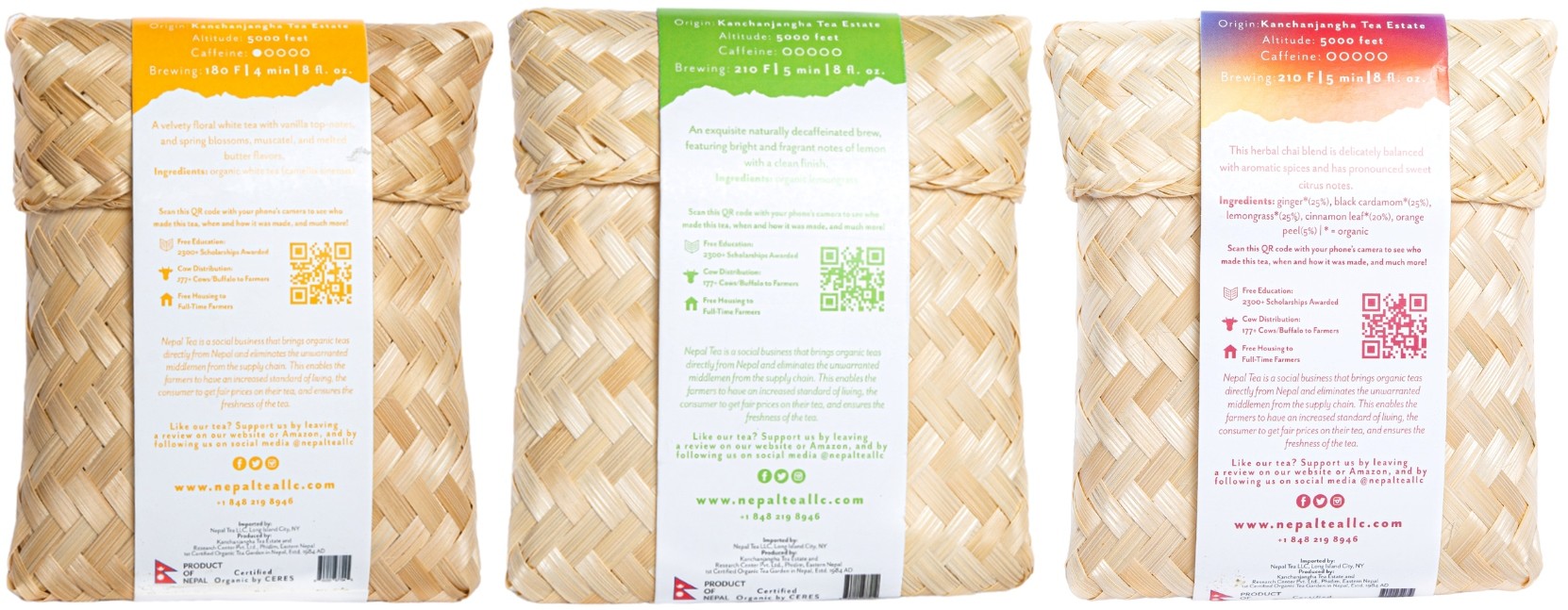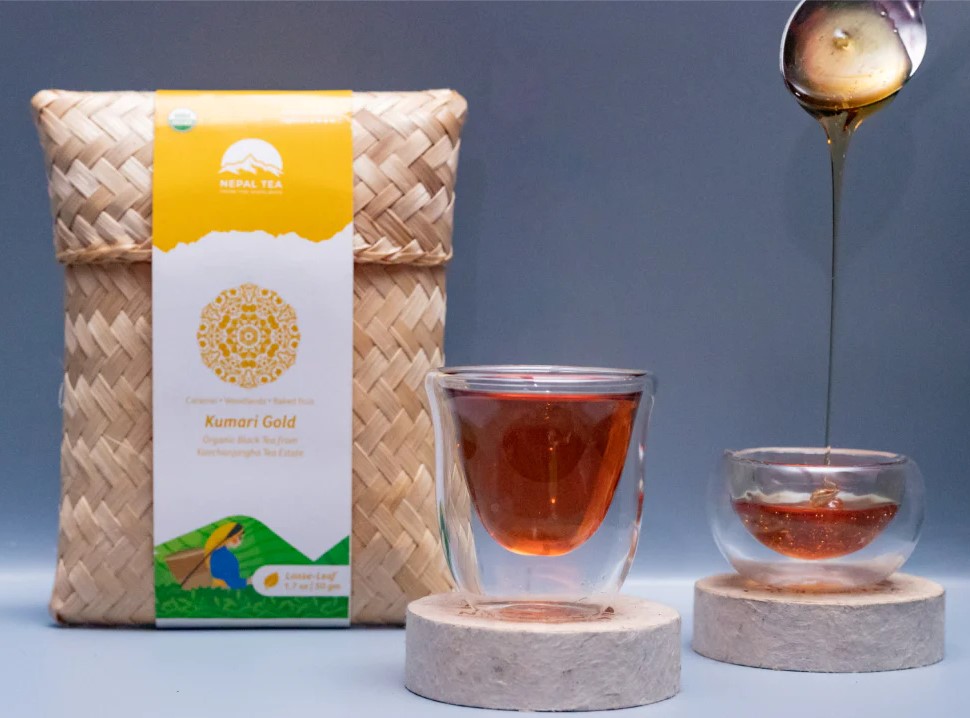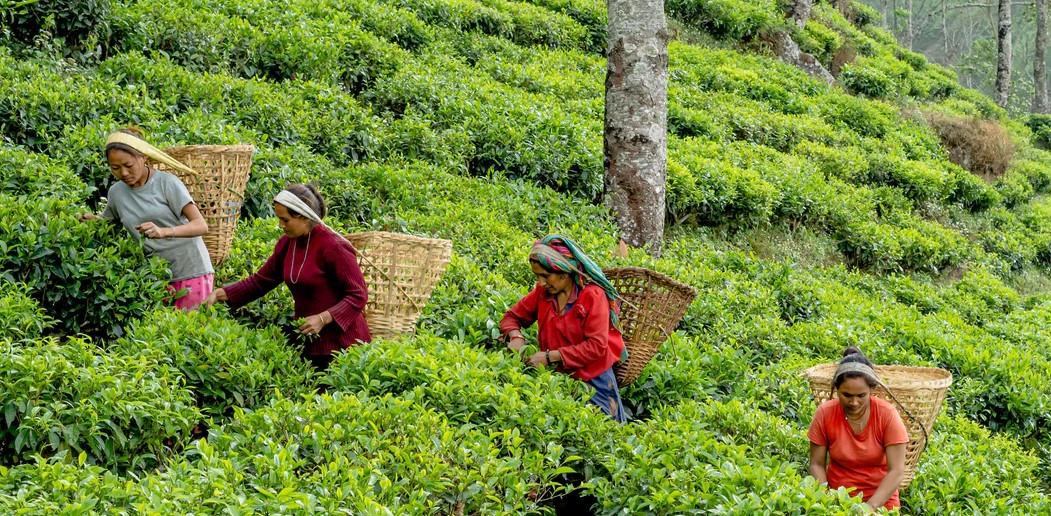When most think of tea, the words wellness, organic, and natural come to mind. But believe it or not, the tea industry is not all that transparent. One tea brand, Nepal Tea Collective, is changing that by bringing more transparency to the tea industry. Nepal Tea Collective has added QR codes to its packaging which offer information on the farm the tea leaves were grown and when the particular bag of tea was plucked, packaged, and shipped. The QR codes are part of Nepal Tea’s pledge to bring more traceability and transparency to the tea and herb industries.

Nepal Tea Collective currently offers a selection of organic black, green, oolong, and white teas, as well as gift boxes and bundles. All of their teas are packed at their origin, in Nepal, in biodegradable bamboo pouches, which are locally handmade. The teas from Nepal Tea Collective are from four different small-holder farms in Nepal. Their aim is to bridge the gap between tea farmers and customers by eliminating the middlemen and working directly with producers. The introduction of the QR codes to its packaging helps to bolster facilitate that bridge.

“The tea industry is ripe for disruption. There are way too many middlemen creating little to no value at all. They’re depressing the income for the farmers and degrading the quality and freshness of tea for consumers,” said Nishchal Banskota, Founder and CEO of Nepal Tea Collective. “We believe consumers deserve to know exactly where their tea comes from and whether or not it’s single-origin. We think of ourselves as a movement to reinvent the tea supply chain and make it more sustainable.”

“We’ve taken the further step of becoming a public benefit corporation (PBC) to really challenge the status quo and make a sustainable business with a core mission to do good for the tea farmers,” continued Banskota. “Becoming a PBC in fact mandates us to our public benefit purpose with legislative reporting requirements which enforce an enhanced level of accountability and transparency. We really want to challenge ourselves to do what is right for the farmers and the industry.”
As stated, Nepal Tea Collective makes the tea farm-to-table supply chain traceable and transparent. Remember reading the back of cereal boxes when you were younger? This is the more advanced version. We invite you to turn to the back of your Nepal Tea collective tea, scan the QR code and learn all about where, how, and when the tea you’re drinking was produced.
For example, the Kumari Gold organic black tea we’re currently drinking was plucked in April 2021 in Garden # 1-4 in Panchthar, Nepal at an elevation between 5,000-6,000 feet by 111 farmers. It was processed in December 021 by 29 employees and packaged that same month by 11 employees. It shipped from Nepal and imported to Long Island City in February 2022, and lastly enjoyed by me today. It’s an amazing thing to know exactly where the things you consume come from. It makes you feel more at ease when enjoying it. Wouldn’t you like to know the entire journey of your favorite foods and drinks?
For more information on this initiative and its delicious tea offerings, please visit www.nepalteacollective.com.

